Assistant Principal / Leader of Pedagogy
Mr Stephen Chapman
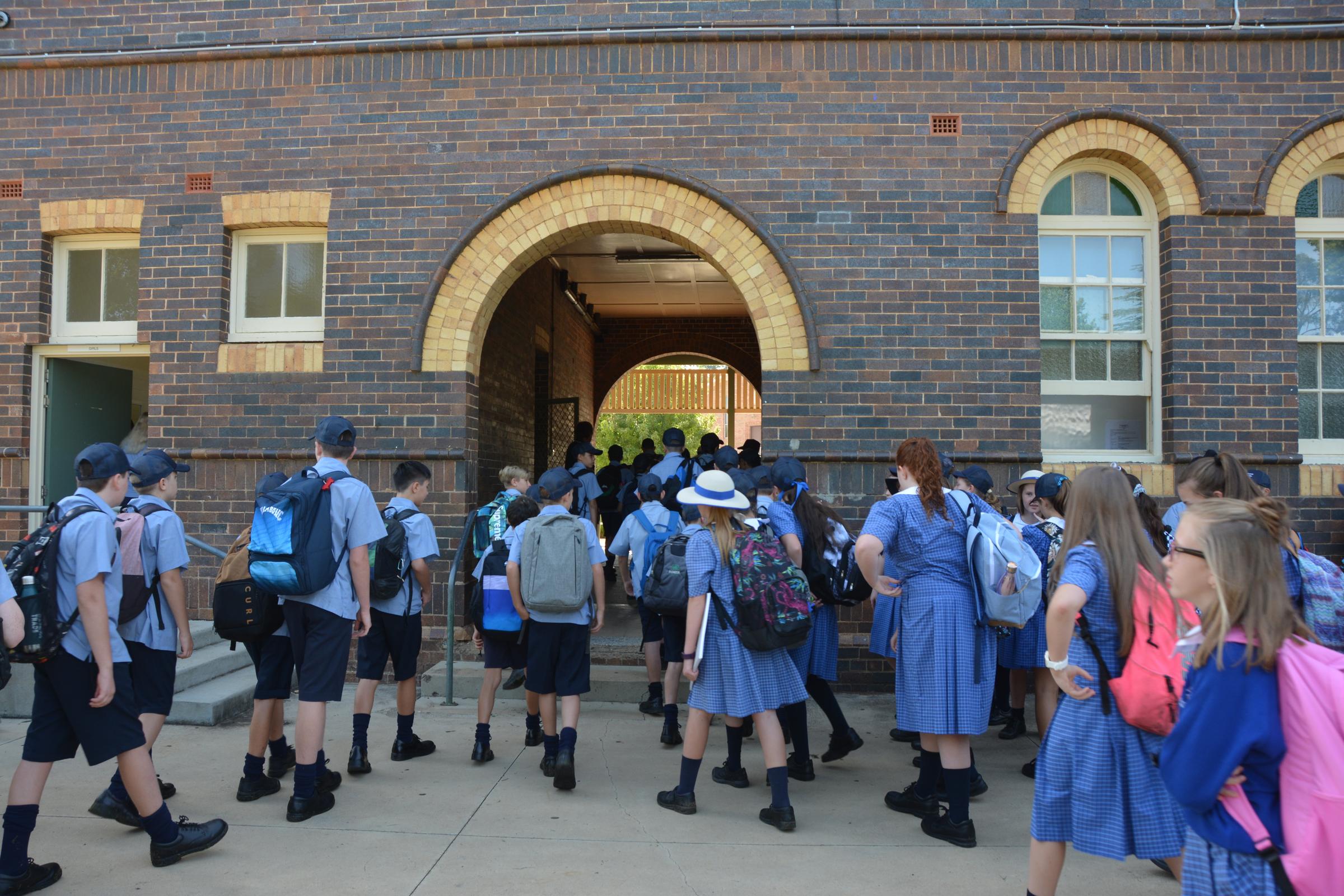
Assistant Principal / Leader of Pedagogy
Mr Stephen Chapman
Mr Chapman’s Top 10 Tips for HSC success
Today, the Half Yearly Reports will become available on Compass for our Yr 12 students. This has caused me to think about our Yr 12 students and their progress through their HSC year. The final year of schooling can be a real battle. I’ve lived through one as a student and over twenty five as a mentor and teacher. I know parents have a whole different perspective of this challenging year and have much advice to give. In this newsletter article, I’m putting together all the information I’ve gathered from feedback I’ve noted or heard, with a little bit of research. What can students do to maximise their chance of HSC success?
Here are my top 10 tips for HSC success.
Tip 1: Be organised
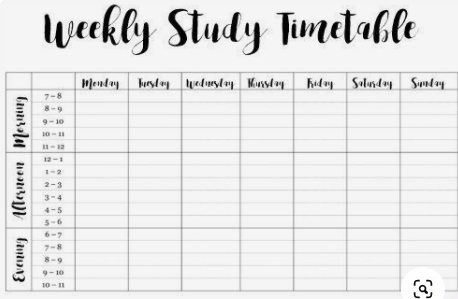

This one seems obvious, but is really important. At the start of this year, we had four successful students from 2021 come back as a panel to talk to Yr 11 and 12 about what worked for them during their final year at school. Several of them spoke about the benefit they got from being organised. Set a home timetable and stick to it! Have set times for daily home learning, completing HSC questions (even if your teacher hasn’t set you any), writing unit summaries, reviewing the syllabus, etc. Setting a timetable also makes it easier to find a balance as you can lock in social time, exercise or casual work. As assessments pop up, you can adjust the time on each subject. Having a digital version of a fortnightly or weekly timetable can make this easier.
Tip 2: Do HSC questions
Doing HSC questions enables you to get used to the types of questions you are likely to see in the actual HSC exams. Past HSC exam questions are the best revision questions. At this stage of Year 12, you should be regularly completing questions from past papers that cover the content you have already finished. At the end of each unit, you should complete as many past HSC questions from that topic as you can to consolidate your knowledge and understanding. Your teachers can help you identify and print them. The sample answers on the NESA website are useful, of course, to check your responses. Otherwise, ask your teacher or a peer for feedback.
Tip 3: Work with peers
At O’Connor, we always examine the data from the HSC exams to see trends. One thing has become clear. Each year, the students who work collaboratively get better results (show more growth) than those who work on their own. So, I suggest you organise times to work together with your friends. I asked Bethanie Rice, last year's Dux and current tutor/study mentor at O’Connor, what she thought about this. Bethanie told me that working with her friends helped her to consolidate her own understanding. If you can teach others, your own understanding becomes deeper (Effectiviology, n.d.). From talking to Year 12 students, it seems clear that you need to choose your work partners carefully as some friends are not a good influence on each other. Organise some study times with your friends and see how well you work together. It is likely to be a win win.
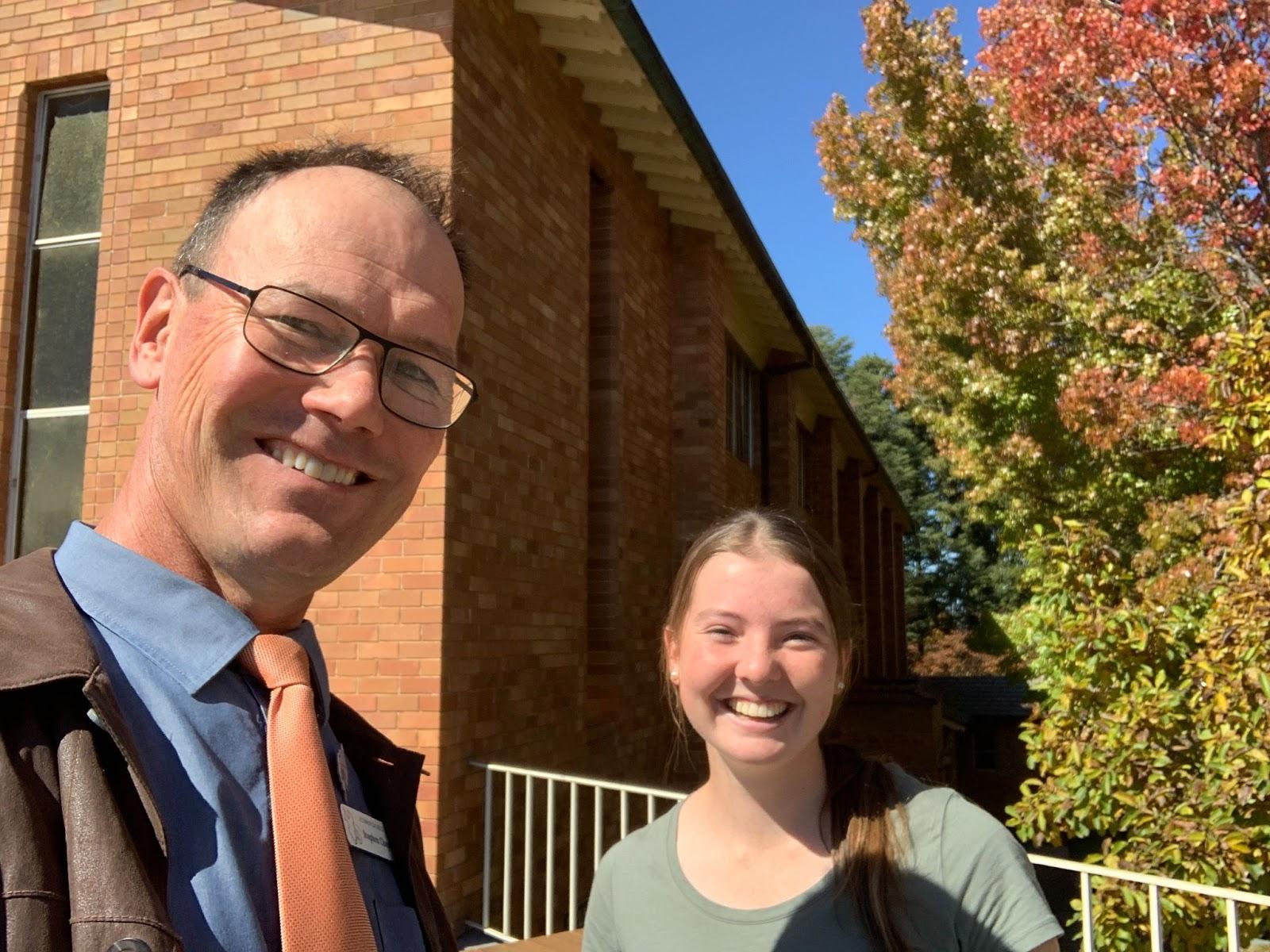

2021 Dux, Bethanie Rice, helped me with her tips for HSC Success when we met this week.
Tip 4: Make the most of class time
There are two parts to this tip. Firstly, attend all lessons (as much as possible). Secondly, work hard in those lessons. Regarding the first point, we have recently been looking at the attendance rates of Yr 12. If your attendance is sitting at 80%, that means you’re averaging one day away each week. That’s two weeks each term! You can’t afford to miss that much time! If you can’t avoid missing a lesson, catch up via Compass or Google Classroom before the next lesson. Regarding the second point, put your best foot forward in class. Use your teachers. Ask questions and stay focussed. Every lesson is an opportunity to move your learning forward.
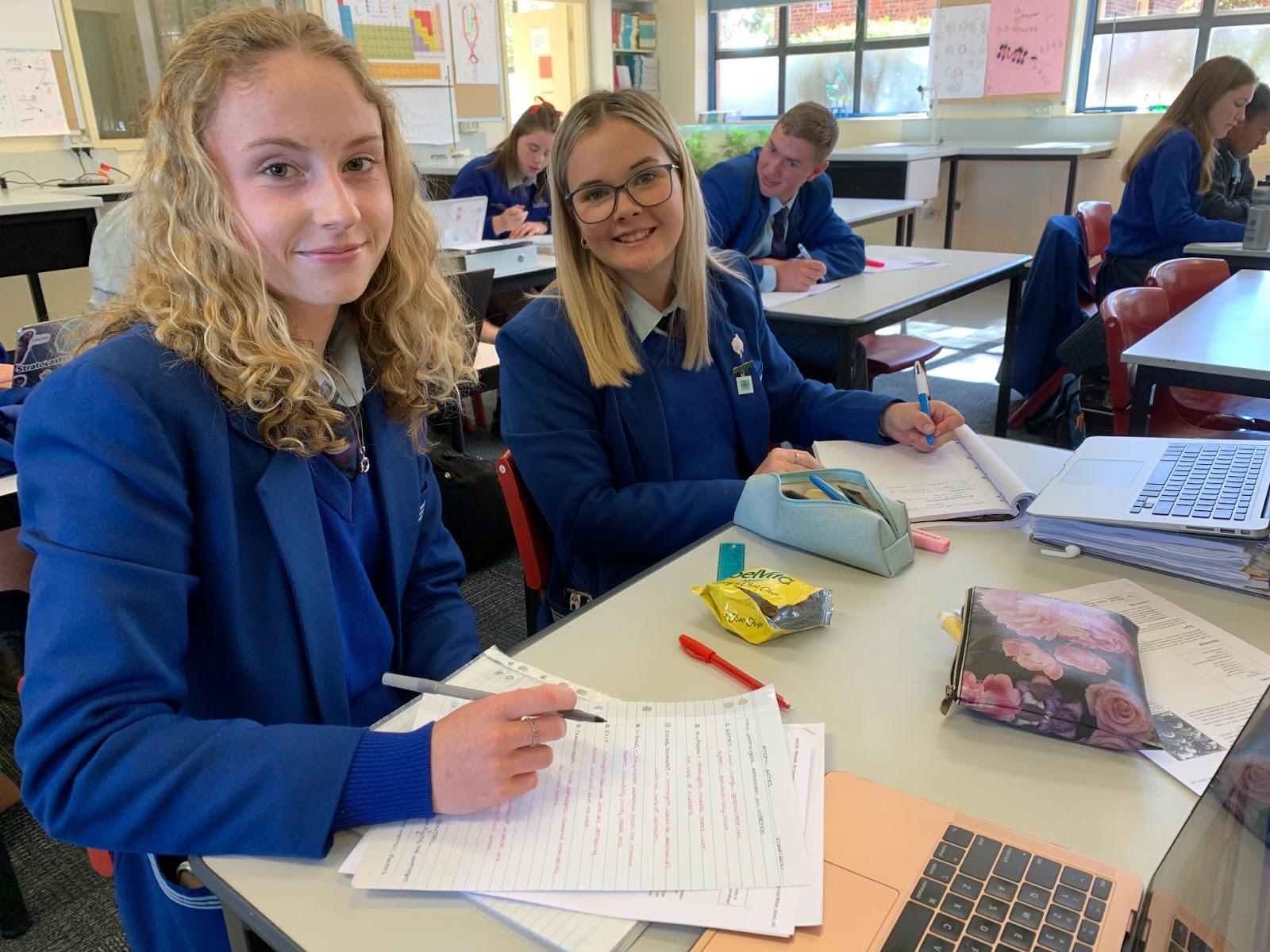

Jordan and Erin making the most of their time in their Biology class this week
Tip 5: Get to know the syllabus
This seems obvious, but HSC Examiners are very careful when they set each question. The can only include a question if it covers dot points from the syllabus. So, get to know the syllabus! The NESA website has an easy-to-follow syllabus for every HSC course. (https://educationstandards.nsw.edu.au/wps/portal/nesa/11-12/Understanding-the-curriculum/syllabuses-a-z) Make sure you know the topics and dot points for each. Completing dot point summaries is a great way to understand each dot point. Importantly, ask your teacher if you don’t understand what the dot point is saying.
Tip 6: Do summary sheets
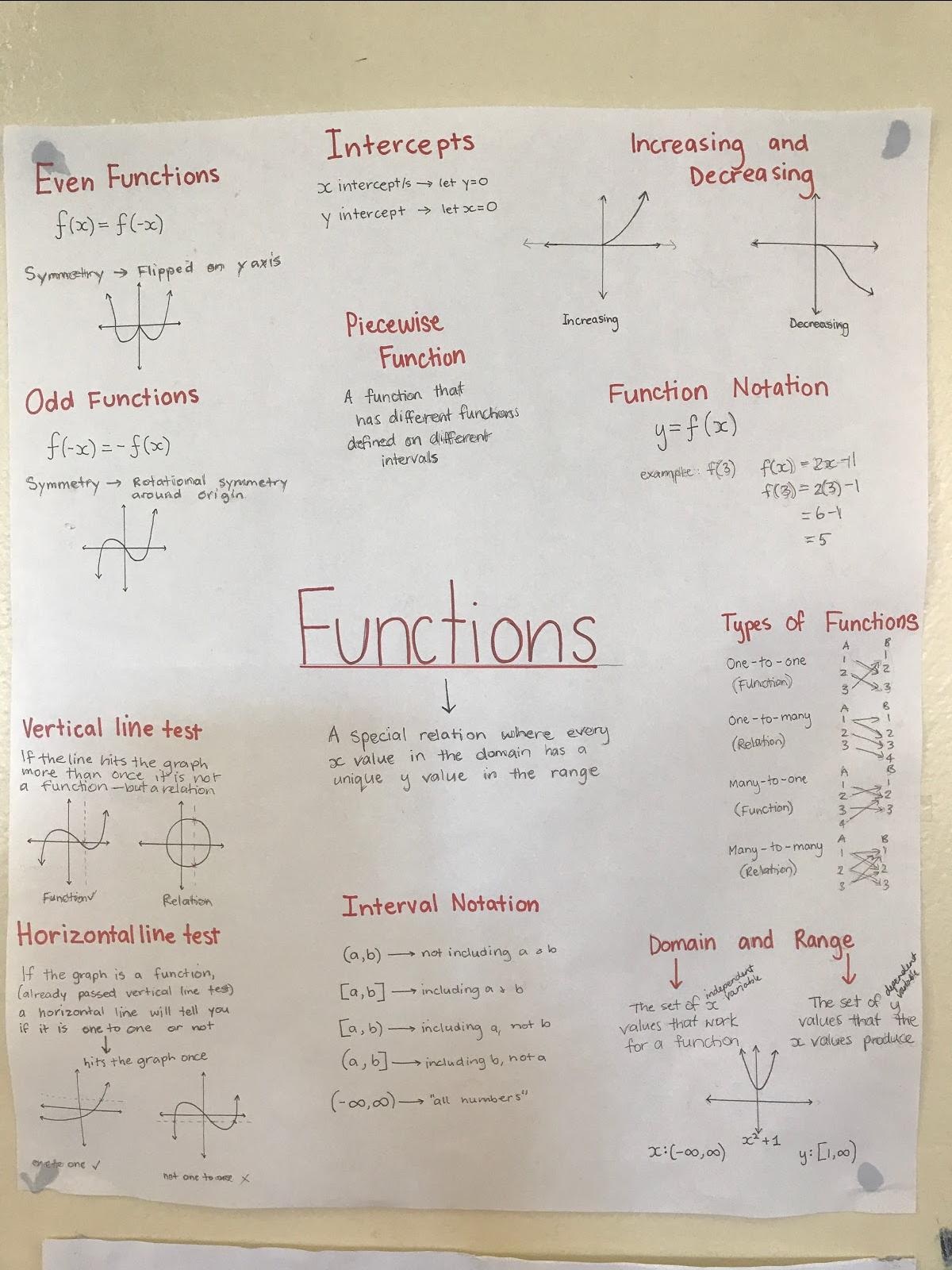

This is certainly linked to tip no. 5. Once you’ve established the topics that can be assessed, complete a Summary Sheet (or Unit Summary) for each one. If you do this as you finish each topic, you will be able to use them during the rest of the year. Stick them up in your room. Pull them out as you get ready for the Trial Exams and then the HSC Exams. For the courses that have a Formula or Reference sheet, keep a copy of these on display too.
Tip 7: Work smarter, not harder
This is all about being more efficient. Doing hundreds of questions on something you can do really well already isn’t that helpful for you. I suggest that you keep a list of things that you need to improve in. Then, work towards getting better at those things. Ask for help from others, watch Atomi videos on that type of question and practice. Don’t give up! Work on it until you get it. Most importantly, keep a list of these content areas or concepts and tick them off as you master them.
Tip 8: Exercise
It is well documented that exercise helps with academic performance. Students who complete some regular exercise do better at school (Literacyplanet, n.d.). This exercise doesn’t need to be too hard or vigorous. It might be as simple as taking the dog for a walk every afternoon. The key is to be regular. Plus, it's great for your mental health. The only time I went for a run every day was during my own Year 12. I found it helped me sleep and helped me study. Go and get out there, Yr 12!


Tip 9: Find your inner motivation
If you are struggling for motivation to study, perhaps you need to think about where it might get you. If you can decide on a dream job, an ideal ATAR, or a Uni degree, then you should feel an increase in motivation. By setting big picture goals, you feel more motivation day by day. “If we overlook the larger objective and we only focus on the minutia, it’s often very challenging to move forward, because we don’t actually know where we’re going. We don’t know what we’re working toward.” (I’m busy being awesome, n.d.)
Tip 10: Sleep
Some students think it’s a good idea to stay up late and cram for an exam. That is not a recipe for success. Good, regular sleep is essential for everyone, but is particularly important for teenagers at school. When we sleep, our brain is actually acting like the glue that allows us not only to recollect our experiences but also to remember everything we’ve learned that day. “Essentially the more you learn, the more you need to sleep which is why a good sleep is critical in achieving success at school.” (Gardner, 2016). If you are getting tired and you find yourself reading the same sentence three times, it’s probably time to go to bed. Get up earlier in the morning and see how much easier it is to work and learn when you are fresh.


There you have it! I’m sure some of these will resonate with you as areas you are doing well already, Yr 12. Equally, I'm sure there are some that you think won’t help you or are too hard to achieve. But what I ask is to consider the tips that you can see working for you best. The best thing about this whole process is that you are not in it alone. Talk to your friends about what works for them, and seek help from your trusted adults. We’re all here to help.
Mr Stephen Chapman
Assistant Principal - Leader of Pedagogy


Never stop learning; for when we stop learning, we stop growing - Jack Lewman
The Protégé Effect: How You Can Learn by Teaching Others. Effectiviology (n.d.)
Why Healthy Sleep Is Vital For School Success. Gardner, S. (2016). Studiosity. Retrieved from https://www.studiosity.com/blog/why-healthy-sleep-is-vital-for-school-success
How To Focus On The Big Picture And Reach Your Goals. I’m busy being awesome (n.d.).
Retrieved from https://imbusybeingawesome.com/how-to-focus-on-the-big-picture/
How Physical Activity Affects School Performance. Literacyplanet. (n.d.).
Retrieved from https://www.literacyplanet.com/au/legends/content/how-physical-activity-affects-school-performance/